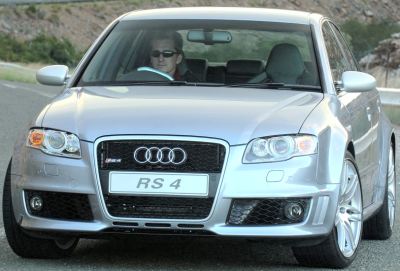
All these questions have been asked recently by a Wheels24 reader, and they are valid.
Let's look at the first question.
Until 1896, legislation in Britain prohibited motor vehicles from travelling more than 6.4 Km/h in the country and 3.2 Km/h in towns.
It also required that every motorised road vehicle should have three attendants - one to steer, one to stoke (for steam-driven vehicles) and one to walk 50 metres ahead of the vehicle, bearing a red flag, signaling the driver when to stop.
The net result of this act, which had been in force since 1865, was that car development progressed quite slowly, and it was a while before the power output of cars rose sufficiently for them to become a viable alternative to "real" horsepower.
The first car:
The first motor vehicle powered by a four-stroke internal combustion engine was designed and built by Karl Benz in 1895. The engine was a one-cylinder of 958 cc capacity, and produced half a kW of power.
It went quite well, I've twice ridden on a replica, so I can attest to that, but it was prone to overheating.
Now let's fast-forward 111 years to just six weeks ago.
I was in Germany where I drove one of the world's most powerful saloons, the 383 kW Mercedes E63 AMG.
How did it feel compared to that original Benz?
Frankly, despite all that power, a lot safer!
The first Benz had rudimentary brakes, no frontal protection, no seatbelts, no airbags?I was just perched on a slippery leather-covered bench, with hardly anything to hang onto.
Lawnmowers:
So my answer to the first question, is that limiting engine power output isn't the answer. Half a kW doesn't seem like a lot of power to us today, we have lawnmowers with as much, if not more, power, but way back then it must have seemed horrendous.
If someone had decided power output had to be limited, where would we be today?
The rub, of course, is that powerful cars go fast, and speed is often associated with road accidents.
But how valid is this?
Fact is, there is little or no research to precisely and scientifically link fast driving with road accidents.
Even in Britain, which is a disciplined and highly researched country, the UK Department of Transport (in its document "Speed: Know Your Limits") admits "There exists no precise figure for the contribution speed makes to causing the collisions".
Wrong place:
What is clear, however, is that speeding at the wrong place and time does lead to accidents, but the power output of the vehicle has nothing to do with this.
The average minibus taxi in South Africa produces only 75 kW, but taxis are major contributors to accidents, injury, and death.
So, to finalise my answer, power output doesn't need to be limited so long as drivers are properly trained in how to use it responsibly.
Which leads to the next question. Should there be "super-licences" for owners of powerful cars?
I believe this is a NO, NO, NO!
There are two reasons. The first is that any elitist situation invariably leads to corruption of the individual concerned. Would having a "super licence" mean you could drive flat-out all the time?
Most certainly not, but it might be seen that way.
The second is an obvious one to most South Africans.
Licences for sale:
It's so easy to illegally "buy" a normal driving licence in this country, without taking a test. So what's to stop you "buying" a super licence, without going through the necessary training?
OK, let's suppose there HAS been a law that limits engine power output.
But you know what?
Just as people will find ways around the "super licence", they will find ways around a limit of power output.
"Pimping your ride", we used to call it customising, is becoming a more and more popular way of individualising your car, especially for those who can't afford a brand-new one or one that in standard trim does what they want it to.
Now, we have traffic cops who seem to spend most of their time either manning speed traps or road blocks to check on outstanding fines.
The large number of obviously unroadworthy cars on our roads is testament to the fact that traffic cops aren't interested in enforcing this law.
So how are they going to know when a perfectly standard-looking (and obviously roadworthy) vehicle has a tuned-up engine? And how are we going to get them to care?
So now what?
Which brings us to the question. What's to be done?
Firstly, these things have a way of becoming self-regulating. Circumstances will limit engine power output - circumstances we haven't even dreamt of - if it's necessary. We don't need legislation, especially if it's based on unscientific research.
But what we DO need is:
a) Proper traffic policing, concentrating on offences which are PROVEN to kill, such as drunk driving, unroadworthy vehicles, over-loading, speeding in suburbs, reckless driving in traffic - or anywhere else, for that matter.
Not merely on exceeding the speed limit on a straight and safe highway.
b) A crackdown on those holding illegal driving licences - perhaps even to the point of confiscating their vehicles.
c) An increase in facilities for those who want to legally drive to take the necessary driving tests
d) Involvement from businesses to ensure their employees are properly trained how to drive and especially how to cope with emergency situations not covered by the ordinary driving test.
I'm sure you can think of more. Drop me a line.




 Publications
Publications
 Partners
Partners














